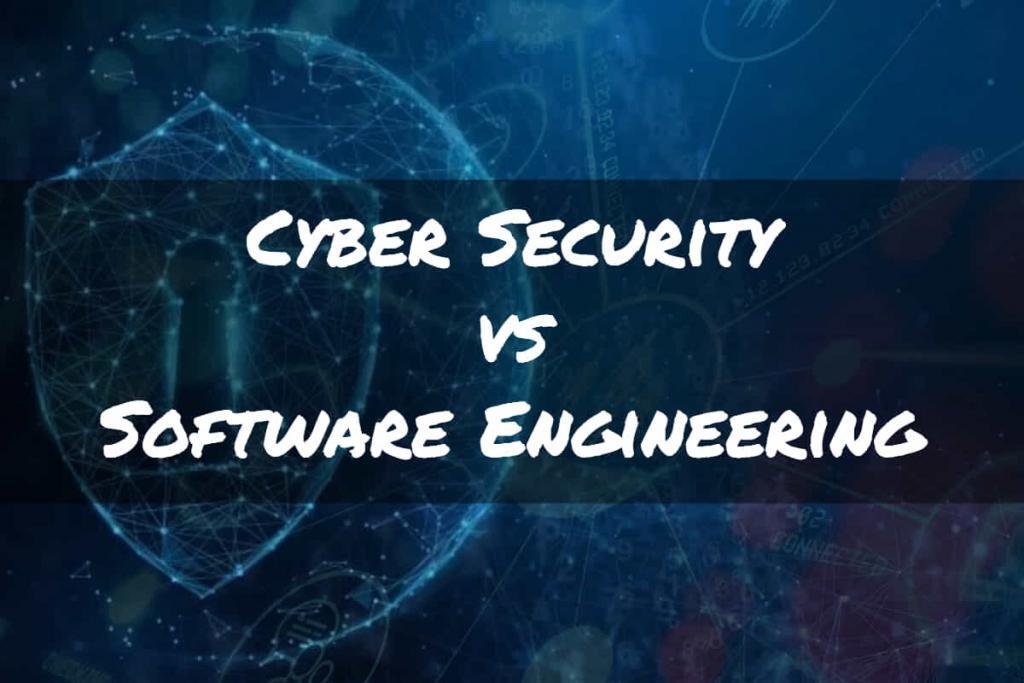Wondering how to start a career in cyber security after 12th grade? If you’re a student who’s getting close to finishing off high school and interested in pursuing a career in cyber security, here are 20+ ways to get started:
- Build Up Your Resume
- Consider a College Degree
- Choose an Online Course
- Develop Your Technical Skills
- Attend a Cyber Security Bootcamp
- Labs / Simulation Environments
- Get Certified
- Stay Up to Date with Latest Trends
- Develop Speaking Skills
- Develop Writing Skills
- Build a Network
- Pursue a Specialization
- Join Cyber Security Clubs or Organizations
- Participate in Cyber Security Competitions
- Gain Experience with Security Tools
- Volunteer for Cyber Security Projects
- Attend Career Fairs
- Read Industry Publications and Blogs
- Consider Freelancing
- Join Online Communities
- Consider Cyber Security Apprenticeships
- Participate in Bug Bounty Programs
- Interested in More…
Build Up Your Resume
Before we start, two things are absolutely necessary when job hunting: building a great cyber security resume and making sure your LinkedIn profile matches.
Make sure to include relevant projects, internships, or certifications to demonstrate your knowledge and expertise in the field.
To really showcase yourself, you can even create a Wix site or utilize online platforms such as GitHub.
Aside from keeping your resume relevant, be sure to highlight your contributions and the results of any projects. This can help employers see the practical applications of your skills and how it’ll benefit their business.
Consider a College Degree
Getting a college degree is great way to get your foot in the door.
The good thing about college is that it’s not all academic! You also have the opportunity to get some real-world experience with internships while you learn from some of the top experts in the field.
This can help you build a strong network of contacts in the field. You may even find a mentor who can provide guidance as you navigate your career.
Now, if you’re really passionate about cyber security and want to take your career to the next level, consider a PhD. A PhD can open even more opportunities, like teaching at a university or becoming a researcher in the industry.
Though a PhD is a significant commitment in terms of time and money, it can lead to a highly rewarding and fulfilling career.
If any of that interests you, there are many universities that offer cyber security degrees. You can use websites like BestColleges and Intelligent to help you narrow down your choices.
Choose an Online Course
Choosing the right course of study in college or university can help lay the groundwork for a successful career in cyber security.
However, if you need flexibility and convenience, online courses are a great option for learning skills at your own pace.
Several online learning platforms offer cyber security courses, including Udacity, Cybrary, Pluralsight, Udemy, and edX.
These platforms provide a wide range of courses, from introductory cyber security concepts to more advanced topics.
Develop Your Technical Skills
If you’re going towards the technical side of cyber security, knowing languages like Python, Java, C++, and JavaScript is a must!
These can be used to analyze vulnerabilities or malware, create custom scripts to automate security processes, or even develop security software.
Fortunately, websites like Codecademy or Coursera offer online courses that teach these skills in a practical, hands-on way.
These platforms can provide you with the guidance you need to gain proficiency in coding and software development.
Attend a Cyber Security Bootcamp
Bootcamps are a great way to break into cyber security. They offer an intensive, hands-on learning experience that can quickly help you gain professional skills.
Even better, they provide a supportive learning environment with access to experienced instructors who mentor you throughout the course.
Be aware of what each bootcamp offers. It’s important to find a bootcamp that offers career services and partnerships to help you transition into a security career.
If you’re interested, my article Are Cybersecurity Bootcamps Worth It? provides a more in-depth view of security bootcamps and how to find them.
Ultimately, it’s important to do your own research and choose a reputable bootcamp that aligns with your career goals and interests. Look for programs that offer a relevant and up-to-date curriculum, experienced instructors, and positive reviews from previous students.
Labs / Simulation Environments
Building a personal lab is another fantastic way to gain hands-on experience with cyber security tools and technologies.
You can set up your lab environment using virtual machines or cloud services, and experiment with various configurations and scenarios.
Building a personal lab can showcase your abilities while being a fun and engaging way to further your passion.
Now, if you don’t have the time or resources to build your own personal lab, consider working with an existing online virtual lab:
- Hack The Box
- TryHackMe
- Vulnhub
- PentesterLab
- OverTheWire
- Root-Me
- Web Security Academy
- Damn Vulnerable Web Application (DVWA)
- OWASP Juice Shop
- Metasploitable
These platforms provide interactive simulations so you can experiment with different scenarios such as penetration testing, web application security, and network security.
They offer a variety of virtual machines and challenges that allow you to practice hacking in a safe environment.
Whether you choose to build your own lab or utilize a pre-existing simulation, they’re a great way to develop your skills and gain hands-on experience in a safe and controlled environment.
Get Certified
Many companies want students to possess security certifications. They’re an excellent way to demonstrate your knowledge in a particular area of cyber security.
These organizations have been around for many years and are widely recognized as credible sources for cyber security certifications:
Cyberseek shows you some of the most common certifications requested. The top three are CISSP, Security+, and CISA. Start with the Security+ and move your way up from there.
To figure out which certifications are best for your career goals, visit the Security Certification Roadmap created by Paul Jerimy.
Stay Up to Date with Latest Trends
The cyber security landscape is constantly changing so it’s important to stay up to date with the latest trends.
One way to stay informed is by listening to cyber security podcasts or YouTube videos to hear from experts such as David Bombal, John Hammond, or NetworkChuck.
Another great way to stay informed is by following thought leaders such as Bruce Schneier or Brian Krebs.
Develop Speaking Skills
Having strong speaking skills is crucial for success in the field.
As a security professional, it’s essential to relay technical information, even to the non-technical members of your team.
One way to improve your speaking skills is to practice presenting technical concepts to your colleagues or clients.
This can help you become more comfortable with explaining complex concepts and ideas in a way that’s easy to understand.
If you need help, popular organizations like Toastmasters provide opportunities to practice public speaking in a supportive and friendly environment.
Develop Writing Skills
In addition to speaking, learning how to write clearly and concisely is also a vital skill. That’s because you’ll be expected to create detailed security documents throughout your career.
There are several resources available online to help you improve your writing skills.
Websites like Grammarly and the Purdue Online Writing Lab offer tips for improving your technical writing.
But if you really want to get good, take a technical writing course at your local college. If you’re lucky, some degree programs already have a technical writing course baked into your curriculum.
Build a Network
A great way to connect with other professionals in the field is to attend cyber security events.
Event such as RSA Conference or Black Hat provide opportunities to learn from experts in the field and connect with other professionals.
Of course, I know these events can be expensive! So, the best way to start is by networking with members of your local BSides or Meetup group.
It’s important to remember that building strong relationships takes effort, so make sure to stay in touch with your network and actively engage with your connections.
They can provide valuable insights and advice on how to succeed in the field and can even help connect you with job opportunities or other networking opportunities.
Pursue a Specialization
Specializing in one area of security is great way to build your expertise and increase your value to potential employers.
Whether it’s network security, risk and compliance, cloud security, or application security, there are many areas to choose from.
Websites like CyberSeek and NICCS provide information on the current state of the job market and the most in-demand specializations.
Choose a specialization that aligns with your career goals. It’ll help you stay motivated and engaged as you develop your skills to become a subject matter expert in your field.
Just keep in mind that the demand for specializations can change over time, so choose one that you’re passionate about and are willing to develop.
Join Cyber Security Clubs or Organizations
Joining a cyber security club or group is great way to find like-minded individuals, learn from each other, and collaborate on projects.
You can start by searching for local cyber security groups in your area or reaching out to your school’s cyber security club.
As a member, you can work on team projects, compete in cyber security competitions, and attend industry conferences.
Here’s a list of industry associations, put together by Cybersecurity Ventures, that you can join.
Actively engaging in these groups can provide opportunities to take on leadership or mentoring roles, which can also help you develop valuable soft skills.
Participate in Cyber Security Competitions
Participating in cyber security competitions is great way to challenge yourself in a fun and exciting way.
These are basically hacking competitions that simulate real-world cyber-attacks and defenses in a safe and controlled environment.
In addition to building your technical skills, you also get to meet and learn from other cyber security enthusiasts.
Competitions such as CyberDefenders, CyberStart America, National Cyber League, Plaid CTF, or DEF CON CTF are all examples of well-known security competitions to try-out.
There are many to choose from, ranging from beginner-friendly challenges to advanced contests that attract top professionals from around the world.
A comprehensive list is found at CTFtime.
Gain Experience with Security Tools
As a cyber security professional, you’ll encounter a variety of security tools. By gaining hands-on experience with these tools early, you become good at using them when it matters.
Different tools are used in different situations, so it’s really best to learn some of each. Here’s a short list of the popular tools:
Nmap (Network Mapper): A free and open-source tool for network exploration, management, and security auditing.
Wireshark: A network protocol analyzer that allows you to see what’s happening on your network at a microscopic level.
Metasploit: A penetration testing tool that allows you to test the security of your network and identify vulnerabilities.
Snort: An open-source intrusion detection and prevention system that can help you detect and respond to security threats in real time.
Security Onion: A Linux distribution for intrusion detection, network security monitoring, and log management.
OSSEC: A host-based intrusion detection system that can help you monitor and respond to security threats on your network.
If that’s not enough for you, CISA created a list of free cyber security services and tools.
Volunteer for Cyber Security Projects
Start volunteering for cyber security projects with non-profit organizations or community groups. It’s a great way to gain hands-on experience in cyber security and make a positive impact in your community.
To find online volunteer opportunities, you can start by browsing platforms like VolunteerMatch, Center for Cyber Safety and Education, CyberUp, Charity Navigator, or even your state cyber security alliance.
If all else fails, reach out to your local community organizations and ask about any available opportunities. Even something simple as securing their network router, installing a web application firewall, or providing basic security awareness training helps everyone!
Attend Career Fairs
Attending cyber security career fairs is great way to kickstart your career.
These events offer an opportunity to learn about each company and be able to network with industry professionals. And, you have direct access to employers who are looking for students like you!
You can find these events either sponsored by your university or you can also checkout Infosec Conferences.
When you’re at the career fair, this is the best time to network! Introduce yourself, ask questions, and discuss your career goals and aspirations.
Additionally, you’ll find seminars focused on career development. You can even attend resume reviews, mock interviews, or workshops on developing new skills.
By the end of the event, you should have a good sense of each company’s security culture and what you’re comfortable with.
Read Industry Publications and Blogs
If you want to keep up with the ever-changing world of security, reading industry publications and blogs is a great place to start.
These resources can help you stay informed about the latest trends and techniques in the field.
You can find a wealth of information on topics such as threat intelligence, data protection, and incident response.
Websites such as Threatpost, Dark Reading, and HelpNetSecurity provide valuable security-related news.
Consider Freelancing
If you’re interested in gaining practical experience in the field, freelancing could be a good option for you.
Freelancing lets you choose which projects interest you and fit your availability.
Platforms like Upwork, Fiverr, and Freelancer offer you the opportunity to work without requiring proof of education or experience.
However, freelancing can also have its challenges!
Finding clients and securing regular work and income is difficult in the beginning. So, before you start freelancing on these sites, it’s important to already possess some level of skill. You don’t want to be passed over because of a bad user review right as you’re starting out.
Weigh the pros and cons before deciding if freelancing is the right path for you.
Join Online Communities
Joining online communities, such as Discord, Quora, and Reddit give you a chance to connect with industry professionals, ask questions, and share knowledge.
Reddit forums (subreddits) such as r/cybersecuritjobs, r/netsec, r/cybersecurity, and r/hacking cater to specific areas of cyber security. There are over a dozen subreddits, so definitely dive in and do your research.
These online communities have become very popular because your questions are answered by experienced professionals willing to teach.
When participating in these communities, it’s important to be mindful of each platform’s culture. The last thing you want is to get banned for not following their specific rules.
Consider Cyber Security Apprenticeships
With an apprenticeship, you can learn from experienced professionals while working on real-world projects.
If you’re lucky, the apprenticeship can lead to a long-term job opportunity with the organization.
To find cyber security apprenticeship opportunities, you can check with companies or organizations in your area that offer apprenticeships.
You can also search for apprenticeships on websites like CompTIA, NIST Cybersecurity Apprenticeship Program or Apprenticeship.gov.
Additionally, some states and regions have their own apprenticeship programs, so it’s worth checking with local government agencies and workforce development organizations.
When applying for cyber security apprenticeships, be sure to highlight any relevant skills and experience you have, such as coursework or certifications.
It’s important to demonstrate your passion and enthusiasm for the field making you stand out as a candidate.
Participate in Bug Bounty Programs
If you know how to identify security vulnerabilities in software, then bug bounty programs are the way to go! You get to work with real-world clients that’ll offer a monetary reward just for finding vulnerabilities!
In addition to experience, participating in bug bounty programs can also help you build your reputation in the industry.
If this sounds good to you, check out platforms like HackerOne, Bugcrowd, and Synack.
These platforms offer various programs with different reward structures and levels of difficulty.
Before you start, it’s important to thoroughly understand the rules of each program to ensure you’re staying ethical.
Interested in More…
- Roadmap to a Cyber Security Career for Beginners
- How to Learn Cyber Security?
- Ways to Work in Cyber Security Without a Degree!
- How to Get into Cybersecurity with No Experience?
- Cyber Security vs Network Security: Which Is Better?
- Why Study Network Security?
- What Is the Best Job in Cyber Security?
- Is Cyber Security Right for Me?
- 20 of the Best Cyber Security Activities for Students!
- What Is an IAM Engineer?
- 19 of The Best Free Cyber Security Courses!
- Cyber Security vs. Data Analytics
- The Future of Cyber Security: Overview of New Technologies



